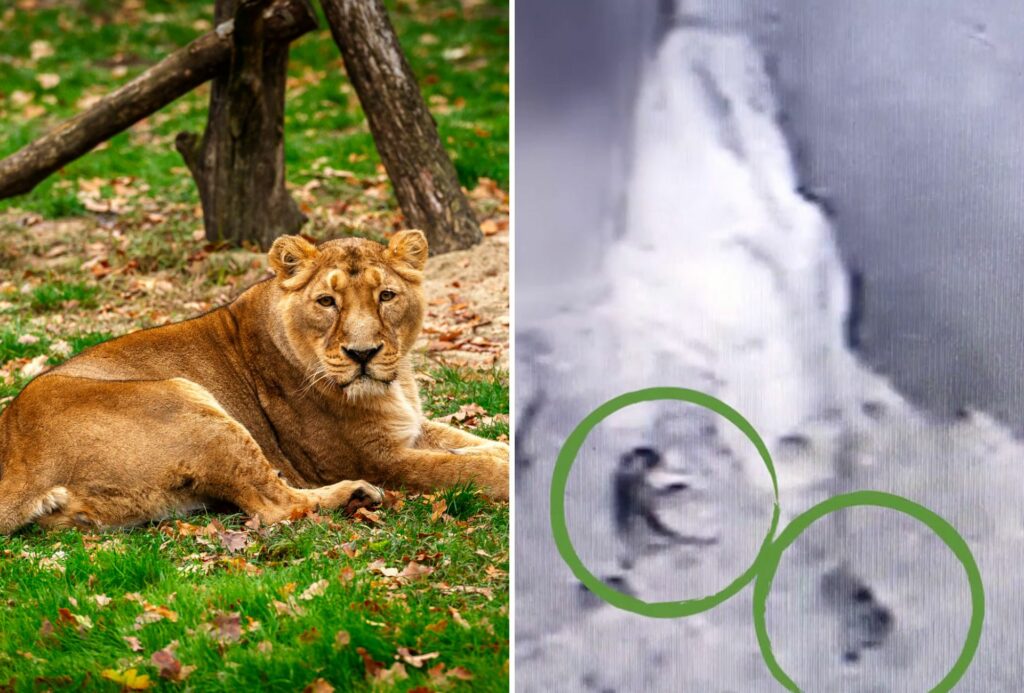Lioness Lorena of Planckendael Zoo gave birth to two little lion cubs on 12 April in the continent Asia part of the park. The cubs will remain with the mother in the delivery room for at least two months before they are ready to wander the park.
This is Lorena's third birth at the Zoo, with the birth having gone smoothly. "As an experienced mother, Lorena knows very well how to handle such a birth," said caretaker Elisabeth in a press release.
As soon as the cubs were born they sought their mother's milk. The zoo reports that they are getting stronger every day with their mother and will eventually be able to venture into their enclosure.

Credit: ZOO Planckendael
The cub's big brother, called Wishu, and their father, Jari, are being kept in a different enclosure for the time being because male lions tend to prey on young cubs. The little ones are blind and only weigh 1.5 kilogrammes, so they will be nursed by their mother until she feels that it is safe enough to bring the cubs out.
Related News
- Third black lemur is born at ZOO Planckendael
- 'A crazy project': French zoo opens 'largest aviary in Europe'
- Seals at Antwerp Zoo forced to relocate
Following the ongoing theme of animals born this year, the zoo is looking for names that begin with the letter Y because the two were born in the year 2023. Once the caregivers know the sex of the cubs, which can be determined at two months old, they will choose a few names for fans to then select their favourite.
The names will, of course, begin with the letter Y and will be from an Asian language. Votes will take place on the zoo's Instagram page as soon as the sexes are determined.

Credit: ZOO Planckendael
The lions are Asiatic lions, also known as Persian lions. They are an endangered species, as there are only 350 known Asiatic lions in the wild today. "It is an endangered species, so we are happy that the new mother and her cubs are doing great," said Elisabeth.
The zoo participates in a European breeding program which is important because their species is only located in one place in India, Gir Forest National Park. In the wild, the animals are vulnerable and subject to hunting and loss of habitat.

